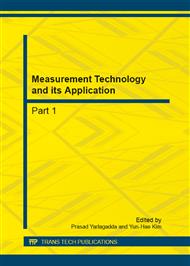[1]
Bruno Bouzy. Associating domain-dependent knowledge and Monte Carlo approaches within a Go program. Joint Conference on Information Sciences (2003).
DOI: 10.1016/j.ins.2004.04.010
Google Scholar
[2]
Bruno Bouzy. Associating shallow and selective global tree search with Monte Carlo for 9x9 Go. In K. Chen, editor, Proceedings of 4th Computer and Games Conference, RamatGan (2004).
DOI: 10.1007/11674399_5
Google Scholar
[3]
Bruno Bouzy. Move pruning techniques for Monte-Carlo Go. In Proceedings of the 11th Advances in Computer Game conference, page 15 (2005).
Google Scholar
[4]
Bruno Bouzy and Guillaume Chaslot. Monte-Carlo Go Reinforcement Learning Experiments. In IEEE 2006 Symposium on Computational Intelligence in Games, Reno, USA (2006).
DOI: 10.1109/cig.2006.311699
Google Scholar
[5]
J. Burmeister, Studies in Human and Computer Go: Assessing the Game of Go as a Research Domain for Cognitive Science, PhD thesis, University of Queensland (2000).
DOI: 10.14264/262054c
Google Scholar
[6]
R. Cant and J. Churchill and D. Al-Dabass, Using Hard and Soft Artificial Intelligence Algorithms to Simulate Human Go Playing Techniques, International Journal of Simulation, vol 2, no 1, pages 31-49 (2001).
Google Scholar
[7]
Michael Chung, Michael Buro, and Jonathan Schaeffer. Monte-Carlo planning in RTS games. In Proceedings of the IEEE Symposium on Computational Intelligence and Games (2005).
Google Scholar
[8]
Markus Enzenberger. Evaluation in Go by a neural network using soft segmentation. In Proceedings of the 10th Advances in Computer Games Conference, Graz (2003).
DOI: 10.1007/978-0-387-35706-5_7
Google Scholar
[9]
Gerald Tesauro. Programming backgammon using self-teaching neural nets. Artificial Intelligence, 134: 181–199 (2002).
DOI: 10.1016/s0004-3702(01)00110-2
Google Scholar


